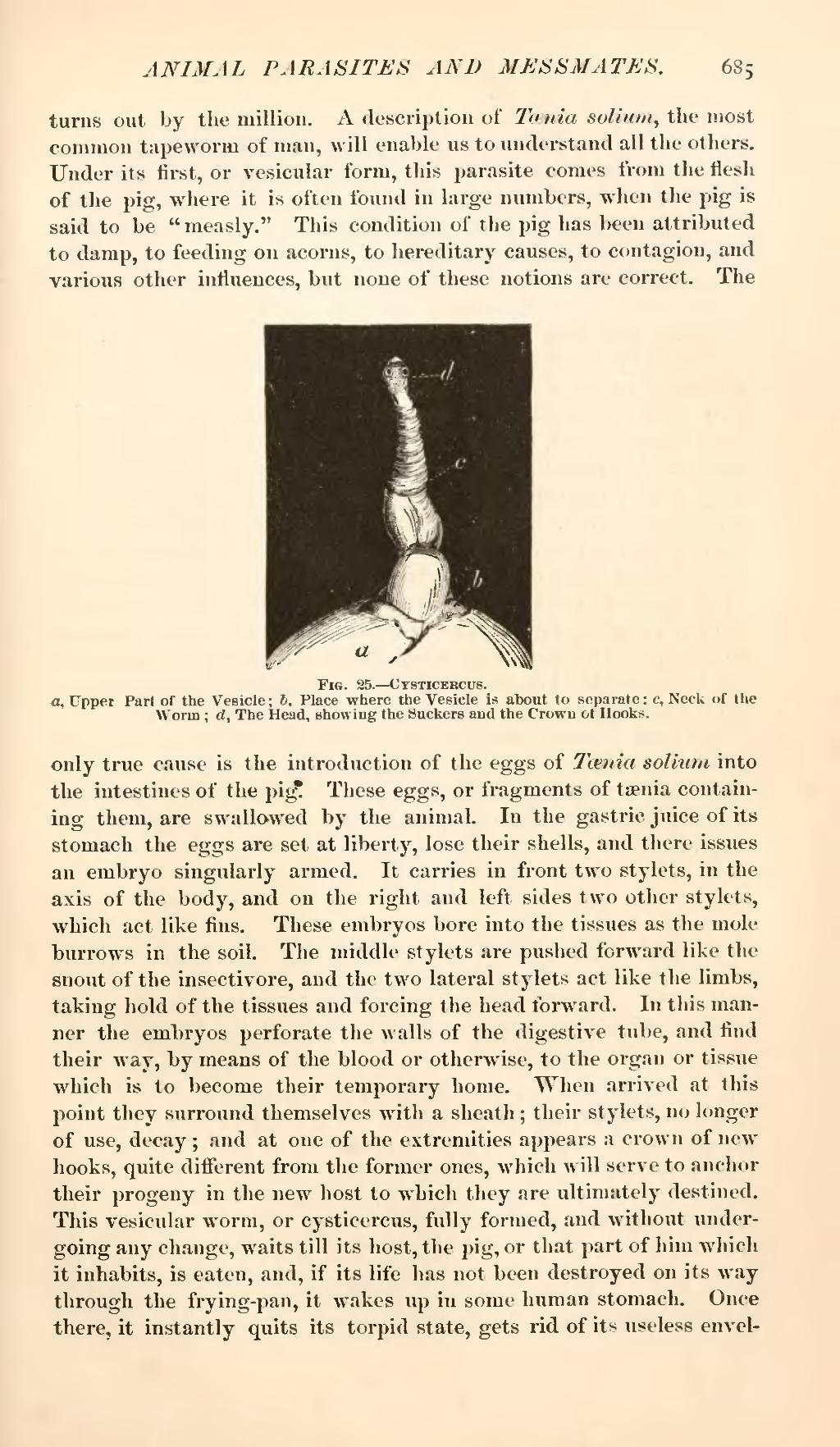turns out by the million. A description of Tœnia solium, the most common tapeworm of man, will enable us to understand all the others. Under its first, or vesicular form, this parasite comes from the flesh of the pig, where it is often found in large numbers, when the pig is said to be "measly." This condition of the pig has been attributed to damp, to feeding on acorns, to hereditary causes, to contagion, and various other influences, but none of these notions are correct. The

Fig. 25.—Cysticercus.
a, Upper Part of the Vesicle; b, Place where the Vesicle is about to separate: c, Neck of the Worm; d, The Head, showing the Suckers and the Crown of Hooks.
only true cause is the introduction of the eggs of Tœnia solium into the intestines of the pig These eggs, or fragments of tænia containing them, are swallowed by the animal. In the gastric juice of its stomach the eggs are set at liberty, lose their shells, and there issues an embryo singularly armed. It carries in front two stylets, in the axis of the body, and on the right and left sides two other stylets, which act like fins. These embryos bore into the tissues as the mole burrows in the soil. The middle stylets are pushed forward like the snout of the insectivore, and the two lateral stylets act like the limbs, taking hold of the tissues and forcing the head forward. In this manner the embryos perforate the walls of the digestive tube, and find their way, by means of the blood or otherwise, to the organ or tissue which is to become their temporary home. When arrived at this point they surround themselves with a sheath; their stylets, no longer of use, decay; and at one of the extremities appears a crown of new hooks, quite different from the former ones, which will serve to anchor their progeny in the new host to which they are ultimately destined. This vesicular worm, or cysticercus, fully formed, and without undergoing any change, waits till its host, the pig, or that part of him which it inhabits, is eaten, and, if its life has not been destroyed on its way through the frying-pan, it wakes up in some human stomach. Once there, it instantly quits its torpid state, gets rid of its useless envel-
